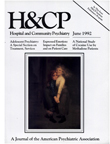Predicting Cocaine Use Among Methadone Patients: Analysis of Findings From a National Study
Abstract
Findings from a large-scale national study of clients admitted to publicly funded drug treatment programs between 1979 and 1981 were used to determine whether cocaine use by current and former methadone patients could be predicted. The sample for this analysis comprised 526 daily or weekly heroin users admitted to 17 methadone maintenance programs. The study found that cocaine use by both current and former methadone patients showed an overall decline during the follow-up year; that patients who stopped using heroin after entering treatment were much more likely to quit using cocaine than were their heroin-using counterparts; and that the odds of initiating cocaine use after admission to a methadone program were much higher among patients who continued using heroin. These findings suggest that methadone programs may be able to reduce cocaine use among some patients by improving their effectiveness in reducing heroin use.
Access content
To read the fulltext, please use one of the options below to sign in or purchase access.- Personal login
- Institutional Login
- Sign in via OpenAthens
- Register for access
-
Please login/register if you wish to pair your device and check access availability.
Not a subscriber?
PsychiatryOnline subscription options offer access to the DSM-5 library, books, journals, CME, and patient resources. This all-in-one virtual library provides psychiatrists and mental health professionals with key resources for diagnosis, treatment, research, and professional development.
Need more help? PsychiatryOnline Customer Service may be reached by emailing [email protected] or by calling 800-368-5777 (in the U.S.) or 703-907-7322 (outside the U.S.).



